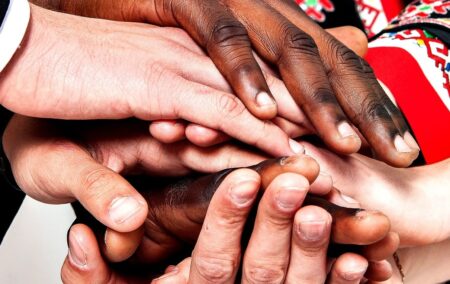South Africa is a crossroads. The Government of National Unity has taken the public by storm, an expression of South Africa’s willingness to see change for the better. This is a key part of the Institute of Race Relations’s #WhatSACanBe project, now bolstered by a concrete plan of action for governments across the country.
The #WhatSACanBe series gives the GNU nine priority areas for reform that require attention to give South Africans the change requested at the ballot box.
The new administration is in[MR2] the “honeymoon” phase, with the government being given more leeway and benefit of the doubt than usual. The next three months will determine the successes, weaknesses, opportunities, and threats to the stability of the GNU. It must harness the successes, and use its political capital to effect change for all South Africans and make it all about #WhatSACanBe.
The ANC was clever in using the term ‘GNU’, because it evokes the collective memory of a time where little could deny the hopes, dreams, and ambitions of a united South Africa.
United in growth, spreading opportunity and success is what South Africa as a nation has always championed, despite the vocal minority wanting to take South Africa back to the past.
Divide and conquer
History is littered with conflicts where groups were pitted against each other based on arbitrary designations like religion, race, ethnicity, or language. Believing in a united South Africa, free from racial division was and continues to be South Africa’s greatest achievement.
The racial and ethnic nationalists in the EFF and MK were clearly rejected by the electorate in the May election, with Julius Malema’s party suffering a humiliating decline and MK being effectively a personal vehicle for Jacob Zuma. The divisive and radical rhetoric from both parties failed to find a foothold amongst most South Africans, with the EFF losing ground in most provinces and MK performing poorly in places where there weren’t many Zulu speakers. Both these parties now face uncertain futures, being locked out of power and being shown that there is a limited market for the particular brand of racial invective that they are peddling.
United we stand
Ask any South African what they think the most important priority that government should address and two out of three times, it will be unemployment, jobs, or the economy. The dignity a job gives allows South Africans to provide for their families, who can learn at school without going hungry. Their taxes pay for infrastructure, so their children do not die senselessly in pit toilets. Their children’s success in school prepares them for the post-school world, whether they go into tertiary education or straight into the world of work. Work is available because of domestic and international investors, who are happy to put their money into South Africa because of strong property rights and economically sound policies.
This is an example of how the cycle of poverty can be transformed into a cycle of prosperity, which provides opportunities for all South Africans to reach their full potential.
Together the GNU and South Africans can open the door to #WhatSACanBe. The IRR provides the battering ram to knock it down.
This is #WhatSACanBe. We need your support.
National Ambition
Wishful thinking? No. Ambitious? Yes. Absolutely. But the South African spirit is alive and well. We don’t only need to come together when the Springboks win the Rugby World Cup or Bafana Bafana succeeds at AfCon or the Proteas make it to the knockouts of a tournament or when another South African Olympian wins a gold medal. We need to harness that spirit of success and unity into a programme of national action, a programme of national growth that will lift millions out of poverty, providing equal opportunities to succeed.
We can do it. Future generations rely on it.Over the next eight weeks, the #WhatSACanBe series will be split into the eight key areas for reform, covering everything from energy, labour, investment, and education and more.
The first paper on public administration can be found here.
If you like what you have just read, support the Daily Friend.

